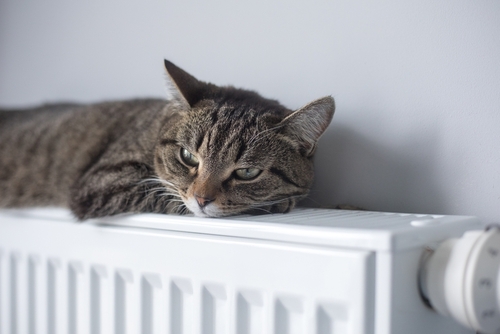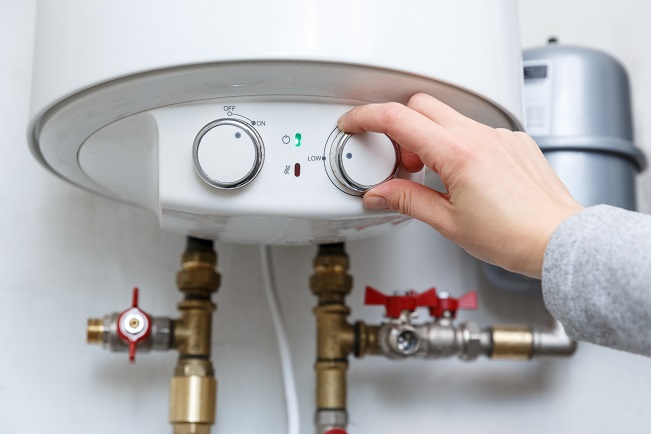Combi vs conventional vs system boilers: what is the difference?
Boilers rarely get paid any attention until they break. Yet they're the beating heart of every home, helping to supply the essentials of warm water and heating. The combination (combi) boiler is the most common boiler in UK homes but it’s not the only one available. So, what are the differences, and do you have the right one for you and your home’s needs? And if you need a boiler repair, do you have sufficent cover?
The different types of boiler
There are three main types of boilers that you can buy: combi, conventional (also known as regular or heat only) and system. Which is suitable for your home depends on a few factors. These include the size of your house, the number of showers or baths in it, and the water pressure in your area. Here’s how each differs:
- Combi boilers: these provide hot water by drawing it from the water mains and heating it with no water tank
- Conventional boilers: these warm water in a water tank providing hot water and heating
- System boilers: like conventional boilers they deliver hot water to the central heating and store hot water within a hot water tank. Water comes from the mains — there's no water tank.
What is a combi boiler?
A combi boiler, as the name suggests, can do two things — heat the house and provide hot water from a single boiler unit. The boiler heats water straight from the water mains, via a heat exchanger, so you can get hot water whenever you need it.
Modern combi boilers efficiently heat water by extracting latent heat from the flue gases. When you need heating or hot water, by turning up the thermostat or having a shower for example, a gas burner in the combi boiler is lit. The heat from the flame is then transferred via the heat exchanger to a circuit, where the hot water can then be directed to the radiators, shower or wherever it’s needed.
Many modern combi boilers also have a pre-heat system which allows the combi boiler to store a small amount of water that can be drawn from the boiler. The water is held inside the boiler and maintained at your desired temperature throughout the day, ready to be sent to the hot water tap instantly.
Pros and cons of combi boilers
Combi boilers are the most popular choice of boilers for UK homeowners. Here are some of the pros and cons to owning one:
Pros
- All components are installed within a single boiler with no external tanks, so it’s compact, neat and space-saving.
- Hot water is available on demand any time of the day or night.
- As it only heats water that’s needed, there’s minimal energy waste, saving you money too.
Cons
- Multiple users will struggle to use hot water at the same time as the water pressure reduces.
- If the boiler breaks down, you can wave goodbye to both hot water and heating.
- As mentioned, you need good water pressure to consider having a combi boiler.
- They’re complex machines and more expensive to repair than a conventional boiler.
What is a conventional boiler?
A conventional boiler is designed to provide both heating and hot water with the support of an additional cold water tank and hot water cylinder.
A tank, usually found in the loft, is filled with cold water. Water is transferred down to the boiler when it needs to be heated up. The hot water is then stored in a cylinder where it stays until a tap somewhere in the house is turned on.
Unlike a combi boiler, you’ll need some extra space for a conventional boiler and all of its external parts. Plus, all the different components are connected by a complex network of pipes.
Pros and cons of conventional boilers
Pros
- As hot water comes from the hot water cylinder, multiple taps or showers in the house can distribute hot water, at the same time, regardless of any water pressure issues.
- An immersion heater can be installed in the hot water cylinder, meaning that if your boiler breaks down, you’ll still have hot water.
- Conventional boilers are more suitable for an older property with an old heating system which only needs small, if any, pipework alterations.
- Conventional boiler systems are compatible with solar thermal panels, so they’re suitable for homes looking to generate sustainable energy.
Cons
- There’s no instant access to hot water. You’ll need to wait for the tank to heat up again before you can use it.
- You’ll need some extra space for the boiler, cylinder and tanks in the loft, so it won’t be suitable for smaller homes.
- If there’s no hot water in the cylinder when you want a bath, you’ll need to wait for it to fill up again.
- Water in the cylinder can lose heat in the cylinder so you need to make sure it's well insulated.
- Installation can be complicated, lengthy, and costly due to the different parts and the pipework.
What is a system boiler?
A system boiler works by supplying hot water to a storage cylinder and through the radiators in your home. Like a combi boiler, the main components of this type of boiler are stored in one unit, making installation, and servicing, much simpler than a conventional boiler. However, they differ in that their water is supplied directly from the mains water supply, so you don’t need to worry about any tanks taking up room in the loft.
Pros and cons of system boilers
Pros
- That hot water tank in the airing cupboard can store a lot of hot water that stays hot for hours.
- A water pump within system boilers quickly delivers water to radiators in the home, and the insulated water storage cylinder is an economical way to provide hot water to a number of outlets/showering family members.
- Like conventional boilers, water storage tanks of system boilers can be heated by solar panels after installation.
- System boilers use the mains water supply which provides better water pressure.
- These boilers only need a water cylinder, which can be tucked away easily in your airing cupboard.
Cons
- System boilers heat a large amount of hot water but at a relatively slow pace — which means you might be waiting a while before you get any hot water.
- System boilers need a water cylinder that will most likely end up in an airing cupboard. Yes this was a pro too, so it depends on how you want to use your airing cupboard.
- It’s not as efficient as a combi boiler where water is heated as and when it’s needed. Hot water in the tank can lose heat quickly.
How to choose the right boiler for your home
Hopefully, having now read the differences that separate combi boilers, conventional boilers, and system boilers, you can go ahead and choose the one that’s right for you and your home.
If you’re still unsure and need some more information, though, don’t worry — we’ve got a little more advice for you on how to choose a new boiler.
Our blog is loaded with more related articles

Boiler help and advice
How to choose a new boiler
When the time comes to replace the boiler, it’s easy to fall into the trap of choosing the cheapest option that works &md...
Read more

Plumbing and heating tips
Heating not coming on? There could be a simple fix...
It’s that time of year again, one of the busiest for heating engineers, when people start to turn their heating on after...
Read more

Plumbing and heating tips
How to keep your house warm in winter
From checking your thermostat to insulating your roof, here's our top tips to keeping your home warm in winter.
Read more
